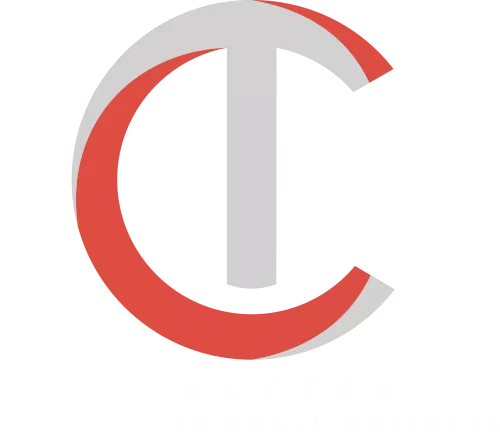At CavetTek, when we discuss the content and pages that a customer wants on their website, we often receive many different answers and responses. But every business – whether your a Fortune 100 company, or just starting out – has a few things that they must communicate with their current and potential customers.
What are those things? Read on to find out!
What Is Your Website’s Goal?
Before diving into the necessary and important pages of a website, there is an important caveat to this article. Every business is different. A service-oriented company will want and need different content compared to a product-based company. So, any website project should begin with you and your website design team discussing the goals of your website. It is important you do not begin without an end in mind.
What Pages Does Your Site Need?
Even without a goal in mind (but don’t do that), here are some of the pages and content that a small business website should consider including.
What Are You Offering?
When building your website, remember that you are building it for your customers first. You are proud of your business – as you should be – but potential customers visiting your site are there to learn about what you can do for them. Make it simple for them to discover that!
Put your services and products as the first menu item. Highlight the best of what you offer. Ensure that customers can find current deals, seasonal offerings, and are made aware of options that can add value to your offering and what you provide.
Once customers find the service or product that they are searching for, oftentimes the next thing they look for is ways to engage.
Contacting You
A rule of thumb. If a customer is trying to contact you, DO NOT STOP THEM.
There are many ways that companies allow users to contact them. Some of the following options are:
- company email or phone number directly on the site
- a contact form linked to your email
- a contact form linked to a CRM or sales platform like Pipedrive or Hubspot
- a contact form linked to an industry-specific service like Housecall Pro
Whatever method you are using to gather information and engage with customers, keep your contact page clear, simple, and to the point. The contact page is not the time to throw up any additional collateral that can distract a potential customer from making a decision to reach out to you.
Pricing and Options
This is a common reason customers will contact you. A pricing and options page is also one area that designers and business owners have many opinions. Whether to include your prices and your options directly on your website depends on a lot of factors, but it is one you should at least spend some time considering.
The advantage of prices and options is that it can help customers better qualify themselves. By the time they contact you, they already have an idea of what they will spend and there are less surprises leading to an increased close rate on your sales.
If a customer is trying to contact you, DO NOT STOP THEM. Share on XThis, of course, can backfire if you do not have a good pulse on your industry or are competitive in ways that are difficult to demonstrate through prices listed on a page.
Project-based businesses will typically not be able to list their prices because more information is necessary to understand how to quote a project in the first place. There is too much risk in providing up-front pricing. Additionally, prices may not matter if you’re in an industry that has to follow a specific procurement process such as government RFP processes that exists at federal, state, and local level.
Whether to include prices and options is a decision is something that you have to decide as a business. Weigh the pros and cons. If you do decide to publishes your prices, make it clear what you will provide for the prices listed.
Expertise and Trust
On the internet, a perfect 5-star rating is a lie. A 4.8-star rating is really good. A 4.5-star rating is good. Anything lower than 4.5-stars is garbage.
This quote, while humorous, highlights the complexity of demonstrating trust on the internet. It is important to establish your expertise in your field. This can be done through regular articles (such as this one!). You can also demonstrate your expertise by showing off what you do through photography or other product demonstrations. Let your potential customers discover your expertise for themselves.
Trust is also important to build through your website. As humans are social creatures, demonstrate that trust directly from your current customers. Highlight their positive feedback. Display your current ratings from various services (such as your Google Business Profile). If you have a team to manage your social media, you may want to display hand-picked, positive messages from those platforms. Any way in which you can show that others have trusted you and have received great results will go a long way to creating trust for the next customer.
Who You Are
If you’re like any business owner, you take pride in the business you are building. Tell people about who you are! Give potential customers insight into how your company runs, where your company came from, and where your company is going.
This is a great place to brag. Show off your team. Talk about your credentials. Demonstrate industry skill. The sky’s the limit!
Please keep in mind, however, that there is a reason that the Who You Are or About page is the last item in this list. It is often the least visited page on company sites. Capture the good things about your company throughout the other pages of your site so that the About page is the cherry on top of an already information-rich website.
Summary
Building a website can be a larger undertaking. There are clearly many other pages and sections of your site may be required – events calendars, eCommerce, and client portals to name a few. But in the list above, you will capture the essential ingredients for a successful, small business website.


